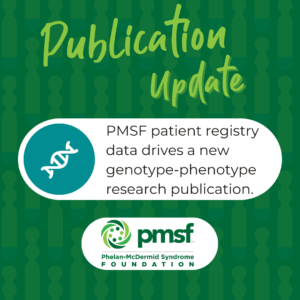Phenome‑wide profiling identifies genotype‑phenotype associations in Phelan‑McDermid syndrome using family‑sourced data from an international registry
Rui Yin1,4† , Maxime Wack1† , Claire Hassen‑Khodja1, Michael T. McDuffie1, Geraldine Bliss2 , Elizabeth J. Horn2, Cartik Kothari1, Brittany McLarney2, Rebecca Davis2, Kristen Hanson2, Megan O’Boyle2, Catalina Betancur3*† and Paul Avillach1*†
Abstract
Phelan-McDermid syndrome (PMS) is a rare neurodevelopmental disorder caused by 22q13 deletions that include the SHANK3 gene or pathogenic sequence variants in SHANK3. It is characterized by global developmental delay, intellectual disability, speech impairment, autism spectrum disorder, and hypotonia; other variable features include epilepsy, brain and renal malformations, and mild dysmorphic features. Here, we conducted genotype-phenotype correlation analyses using the PMS International Registry, a family-driven registry that compiles clinical data in the form of family-reported outcomes and family-sourced genetic test results.
Results: Our results showed that increased deletion size was significantly associated with delay in gross and fine motor acquisitions, a spectrum of conditions related to poor muscle tone, renal malformations, mild dysmorphic features (e.g., large fleshy hands, sacral dimple, dysplastic toenails, supernumerary teeth), lymphedema, congenital heart defects, and more frequent neuroimaging abnormalities and infections. These findings indicate that genes upstream of SHANK3 also contribute to some of the manifestations of PMS in individuals with larger deletions. We also showed that self-help skills, verbal ability and a range of psychiatric diagnoses (e.g., autism, ADHD, anxiety disorder) were more common among individuals with smaller deletions and SHANK3 variants.

